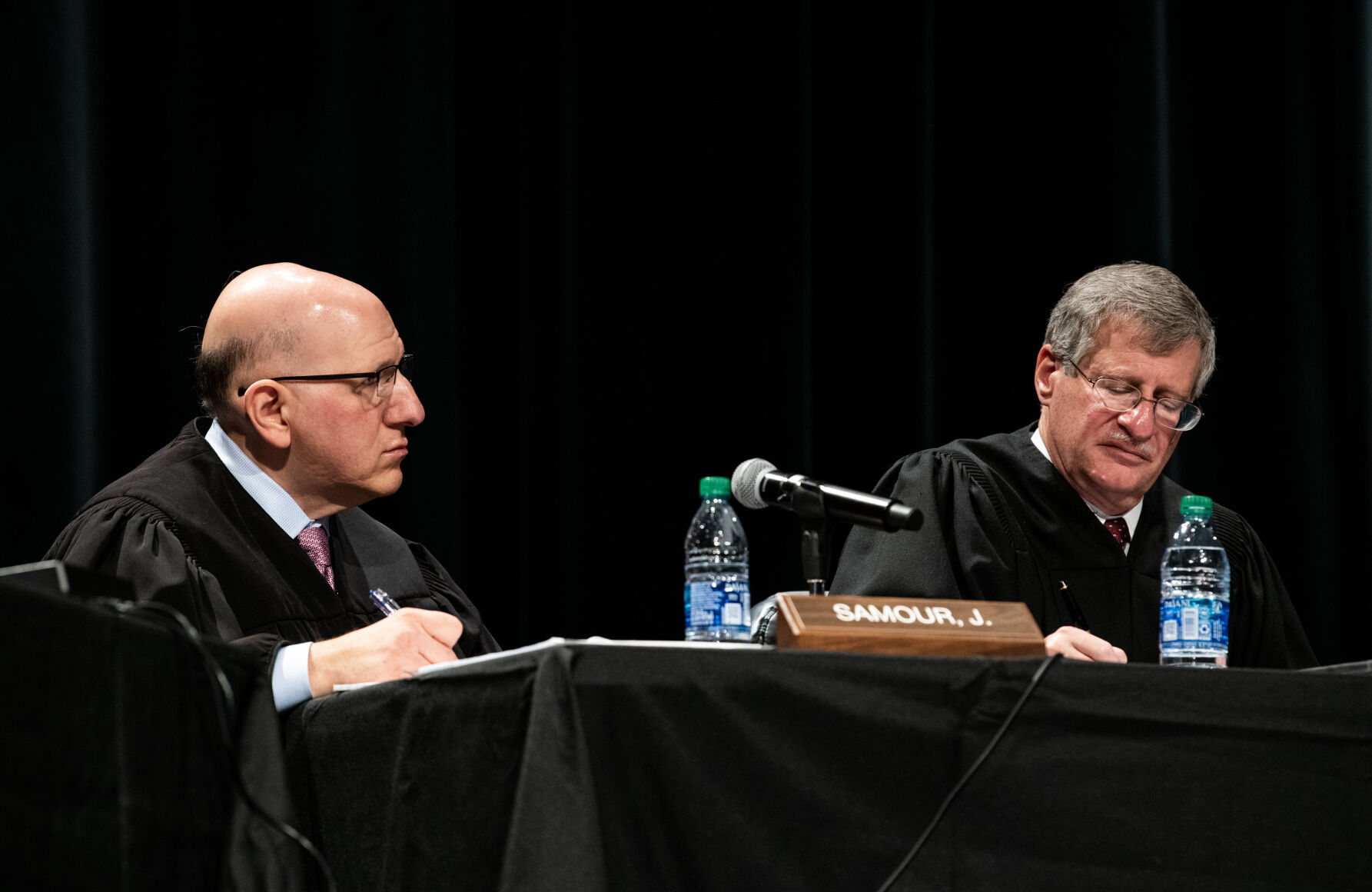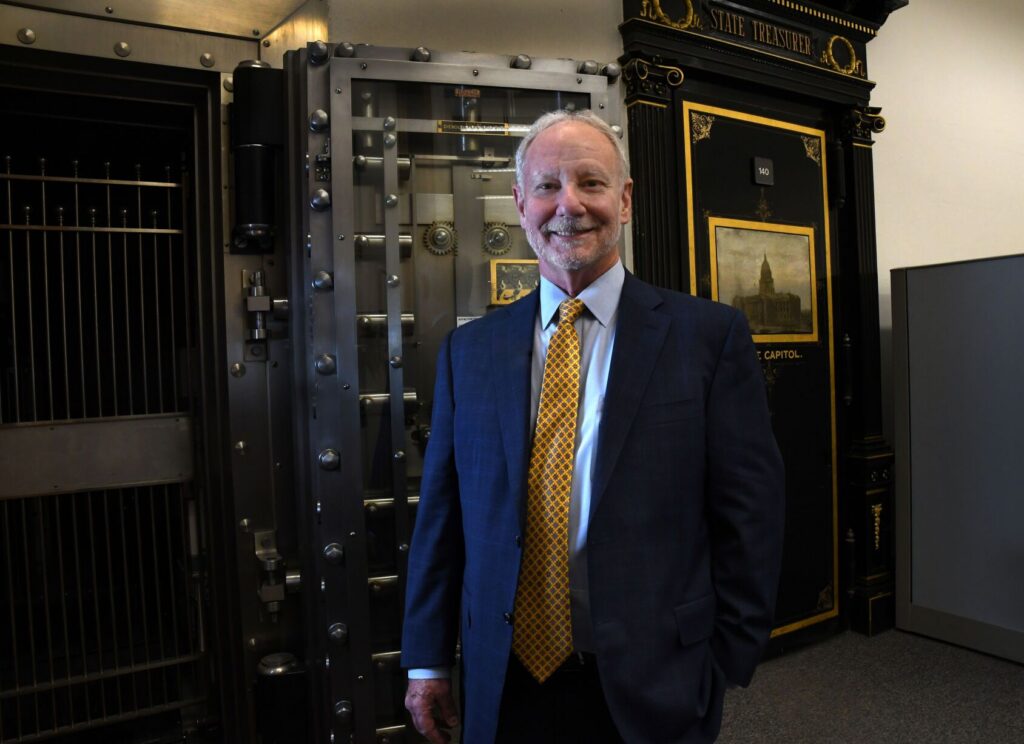Colorado’s urban renewal law under scrutiny by state Supreme Court

For years, Colorado’s urban renewal law has enabled local governments to spur redevelopment of areas deemed blighted, with downtown Golden, Denver’s Central Park neighborhood, and the Anschutz Medical Campus in Aurora among the projects completed under the state’s framework.
On Tuesday, the state Supreme Court examined a key tool that urban renewal authorities use to finance their projects, and whether the state official in charge of implementing the law acted beyond her authority when issuing regulations.
The case, arising out of Aurora, addresses the balance between where property tax revenues from urban renewal areas should ultimately go. Instead of counties, school districts and other local governments receiving the money as normal, a portion of the tax revenue in urban renewal areas goes to pay for the project itself, and to the investors who purchase bonds.
The system is known as tax increment financing. Over a 25-year window, an urban renewal area will contain a base value and an “increment.” In broad terms, the base is the blighted property’s valuation before the implementation of an urban renewal plan. Tax revenues from the base value are paid to counties and schools.
The increment is the value attributable to the urban renewal plan and the development that occurs because of it. For 25 years, increases in property value that happen because of the increment belong to the urban renewal authority.
However, the urban renewal law requires that whenever a local assessor revalues property, the base value and the increment are “proportionately adjusted.” The law does not specify what that means.
“The legislature made a policy choice to balance encouraging redevelopment with the ongoing revenue needs of local governments and schools,” attorney Jessica E. Ross told the Supreme Court during oral arguments on Tuesday. “The General Assembly left that to the property tax administrator.”
The question for the justices was whether the administrator, JoAnn Groff, has issued regulations that comply with the law. Last year, the state’s second-highest court said no.
Under Groff’s regulations, increases in a property’s value that go toward the increment – and to urban renewal authorities instead of counties – must be attributable to changes at property itself. But for any increase in value from “market perceptions” that properties are “more or less desirable” because they are in an urban renewal area, the tax revenue is split between the base and the increment.
Or, in other words, between counties and urban renewal authorities. The Aurora Urban Renewal Authority did not believe that was correct, so it sued.
“These are men and women who are out every day trying to bring investment into Aurora to remediate blight,” attorney Thomas W. Snyder told the Supreme Court, referring to the authority’s employees. “They are focused on, by definition, areas that private investment won’t otherwise come to. So they have to wine and dine, and bring in investors, and bring in developers, and show them properties and offer them incentives like TIF (tax increment financing) in order to get them to develop.”
In January 2022, a three-judge panel of the Court of Appeals sided with the authority, calling Groff’s regulations “illogical,” amounting to a “virtual defunding” of urban renewal projects.
“Market perceptions that properties located in a TIF plan are more or less desirable or valuable logically are attributable to the TIF plan, not general market conditions,” wrote then-Judge Michael H. Berger. “But for the TIF plan, there would be no market perception that a property in the TIF plan was more or less desirable or valuable.”
Judge David H. Yun dissented. Given the law’s mandate to proportionately adjust both the base and the increment during routine reassessments of property value, he could not say the regulation was unlawful. The majority, he warned, “crosses the line into the area of public policy” by striking down Groff’s method.
On appeal, Groff and Arapahoe County’s assessor, PK Kaiser, argued the regulation on proportional adjustments made sense in order to prevent urban renewal authorities from sitting on land, not developing it, yet earning tax revenue from increases in value that would have happened anyway.
“It encourages urban renewal authorities to do what they said they would do and take advantage of their plan,” said Ross.
Aurora’s urban renewal authority, meanwhile, proposed a regulation that would assume all increases in an urban renewal area are due to the development plan, but local assessors could subtract a percentage based on general increases in value countywide.
“I, frankly, don’t find your proposal to be unreasonable. The concern I have here is the legislature did not define proportional adjustment,” responded Justice Carlos A. Samour Jr. “It left it to the administrator.”
Justice Richard L. Gabriel echoed that to strike down the regulation, the court would need to find Groff acted contrary to state law – and it did not seem obvious that she did.
“What did the administrator’s method here violate?” he wondered.
The case is Kaiser et al. v. Aurora Urban Renewal Authority et al.














